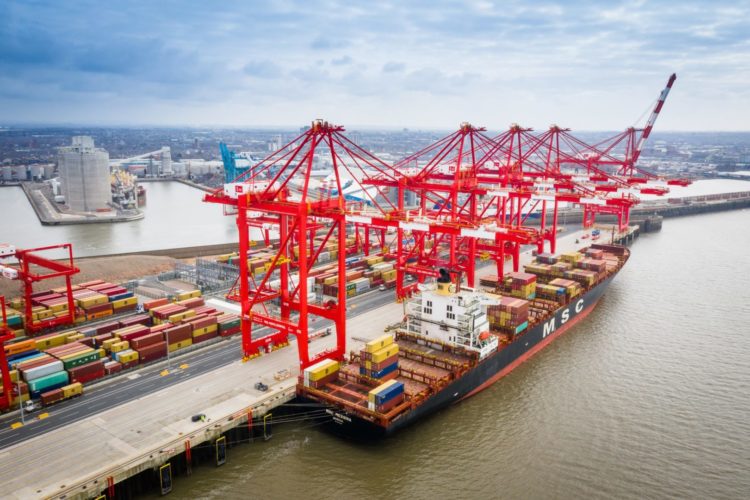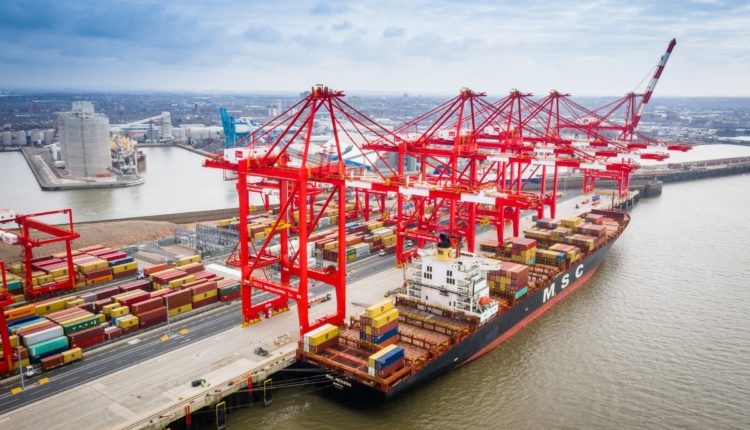Consultancy Avison Young has published a new study which shows the Port of Liverpool is proving to be one of the most resilient parts of the Merseyside economy during COVID-19. Tony McDonough reports

A new report shows the Port of Liverpool is proving resilient in the face of the COVID-19 economic crisis and is offering a much-needed boost to the Merseyside economy.
Property consultancy Avison Young has published its UK Cities Recovery Index which shows a number of sectors had remained resilient in the face of huge pressures caused by the pandemic and subsequent lockdown.
The index uses a number of high-frequency indicators, which are combined into an overall Recovery Index score, which illustrates the evolution of urban impact and recovery over time since February 29, 2020.
READ MORE: New COVID restrictions for Liverpool city region
In Liverpool, the Commercial Activity Sector Index has remained robust, despite the renewed local social distancing measures. This is partly due to the Port of Liverpool remaining operational, which has provided a boost to the city’s economy, with the index standing at 99.7 on September 27.
At the start of the pandemic there were initial fears about the impact on the supply chain, particularly with much of the UK’s essential food and medical supplies coming from overseas. But the UK ports sectors has gone into overdrive to keep the nation supplied and the Port of Liverpool, owned by Peel Ports, has played a pivotal role.
The Mobility Sector Index for Liverpool, which looks at levels of walking, driving, and transit use across the city, experienced a noticeable decline since the announcement of the new local restrictions.
The Sector Index fell to 90.3 on September 27, down 6.5% from the 96.6 figure recorded on September 21 – the day before further restrictions came into effect. Following a small rise in activity in the first half of September, the Residential Sector Index for Liverpool has since plateaued and is at 111.0 on September 27, however this does show that the sector has been performing well since the end of February.
Another sector that bounced-back over the summer but has since dipped again, is hotel and leisure. The ending of the Eat Out to Help Out scheme at the end of August has had a negative impact on the Hotel & Leisure Sector Index for the city but standing at a level of 90.3 on the September 27, it is far above the 76.2 figure for the national Sector Index on the same day.
READ MORE: Liverpool tourism sector takes £1bn hit from COVID-19
Stephen Cowperthwaite, principal and managing director of Avison Young’s Liverpool office, said: “Liverpool offers so much in terms of its cultural, heritage and sporting offer, that, allied to its popularity as a destination for retail, leisure, conferences and cruise liners, has enabled the city to build upon its success of being 2008 European Capital of Culture.

“However, the effects of COVID-19 have had a significant impact upon the tourism, hospitality and construction sectors that have been so important to Liverpool’s resurgent economy in recent years.
“We began to see signs of a cautious recovery over the summer, but with schemes such as Eat Out to Help Out now over, stricter local restrictions now in place and as we head into the winter months, it is a critical time to assess how the city responds.
“Recovery has to address the threats to lives and livelihoods by placing wellbeing at the centre of policy making, whilst also playing to the city’s key strengths in life sciences, health innovation, digital and creative industries.
“The time to act is now to ensure that we bounce-back well and build a sustainable and inclusive economy to continue Liverpool’s renaissance as a world class cultural city.”

